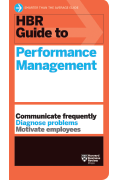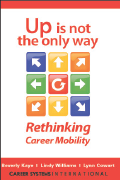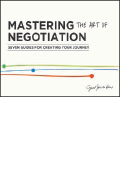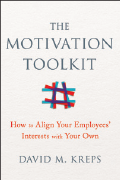TD Magazine Article
Modernizing Performance
A review of HBR Guide to Performance Management by Harvard Business Review Press
Fri Dec 01 2017
HBR Guide to Performance Management

By Harvard Business Review Press
Harvard Business Review Press, 256 pp., $19.95
When reading this book, I can't help but think of a college friend, who we'll call Sam. An environmental engineer who does quality assurance work for a group of water treatment facilities, Sam loves his work—but hates his job. Why? "I never get any real feedback," he told me on a recent visit. "Whenever I ask for it after finishing part of a project, my boss always tells me he's too busy. And when he finally does tell me what he thinks during our annual review, my projects have changed so much the stuff he says doesn't matter anymore."
While Sam's experience might be a bit extreme, it encapsulates the problems with conventional performance management strategies. As the HBR Guide to Performance Management states in its introduction, "An individual's appraisal, rating, and compensation once rested on the completion of annual goals—but today, those targets often become outdated before the year is out." Indeed, although performance management remains a critical tool for evaluating and developing a workforce, its traditional processes mostly grew up in a different age—one when companies planned their goals years in advance and most workers performed repetitive tasks with simple measures of success.
So, how can companies manage performance in a way that's more attuned to modern times?
Harvard Business Review Press attempts to answer that question with this book, filled with tools and best practices. Divided into five sections, it is written to help talent development professionals and other organizational leaders retain effective techniques, shed outdated ones, and customize performance management approaches around company goals, strategies, and culture.
Each section of the book goes into detail about how to handle a specific aspect of performance management. The first, for example, focuses on goal-setting and includes chapters about what effective goals look like, how to align these goals across individuals and the organization, and how leaders can create steps toward achieving them. Moving forward, the second section focuses on making performance management a more continuous process, the third focuses on using it to develop employees, the fourth discusses how to handle formal reviews, and the fifth explores difficult-to-answer questions.
In terms of quality, readers should set high expectations when opening this book. True to its name as a guide, it includes a floor-to-ceiling range of topics, with everything from high-level explanations to job aids and templates. The writing tends to feature accessible language and a clear voice, and the book has easy-to-read formatting with short pages and large print. The text frequently references credible research, and it includes a list of sources in its final pages.
Overall, this book is a strong option for talent development professionals who want to improve how their organizations manage performance, or for those who just hope to get better at managing their teams. It also would make a great read for new managers at your organization.
Up Is Not the Only Way

Beverly Kaye, Lindy Williams, and Lynn Cowart
Berrett-Koehler, 144 pp., $17.95
With the advent of flatter organizations, the ladder-shaped image of a successful career has started to fade. People no longer can count on it as a ready-made model for a happy working life, and must forge their own paths to satisfaction. Up Is Not the Only Way explores the shapes these new paths can take, the directions careers can go. You'll learn to look at your skills and figure out whether it's time to grow in your current role, build exploratory experience toward a new one, make a lateral move, realign your career to make it a closer fit with your long-term goals, move on to a new company, or take the old-fashioned vertical route.
Mastering the Art of Negotiation: Seven Guides for Creating Your Journey

Geurt Jan de Heus
BIS Publishers, 216 pp., $45
Whether you're hammering out a contract with a supplier or convincing business leaders to provide you with the data needed to evaluate a training program, negotiation is constant in today's workplace. However, it's also a skill that many professionals either fear or overlook. Enter Mastering the Art of Negotiation. Readers can expect to learn about the different components of negotiations, the different dynamics that affect them, their structural and procedural steps, and how to perform them in a way that makes everyone feel like a winner. It's brought to life by the writer's conversational voice, engaging illustrations, and deep expertise.
The Motivation Toolkit: How to Align Your Employees' Interests With Your Own

David M. Kreps
W.W. Norton & Company, 272 pp., $27.95
For most companies, getting employees to show up and do the bare minimum isn't enough, not for long-term success. However, convincing people to consistently put forth maximum effort can prove difficult. As such, figuring out how to reward and motivate employees should be a systemic effort, an idea that Kreps highlights in The Motivation Toolkit. He describes strengths and limitations of traditional pay-for-performance systems, the nature of economic and social motivation at work, and different tools for creating an engagement strategy tailored to your organization. The book's last chapter is perhaps its most useful, with a series of questions to ask leaders and employees to find out which tools will work best for you.
What's on Karie Willyerd's Bookshelf?
Mindset: The New Psychology of Success by Carol S. Dweck. Dweck distills her decades of research on achievement and success into a simple groundbreaking idea: the power of our mindsets. Every educator should read this, as should every person who wants to break through to the next level.
How We Learn: The Surprising Truth About When, Where, and Why It Happens by Benedict Carey. A wonderful, practical, playful, and fascinating guide to what we really know about learning and memory and how we can apply it in our own lives.
Crucial Conversations: Tools for Talking When Stakes Are High by Kerry Patterson, Joseph Grenny, Ron McMillan, and Al Switzler. Not a day goes by that I don't use the concepts in this book to help me deal with relationships or politics at work, or delicate matters at home.
You've Reached ATD Member-only Content
Become an ATD member to continue
Already a member?Sign In

